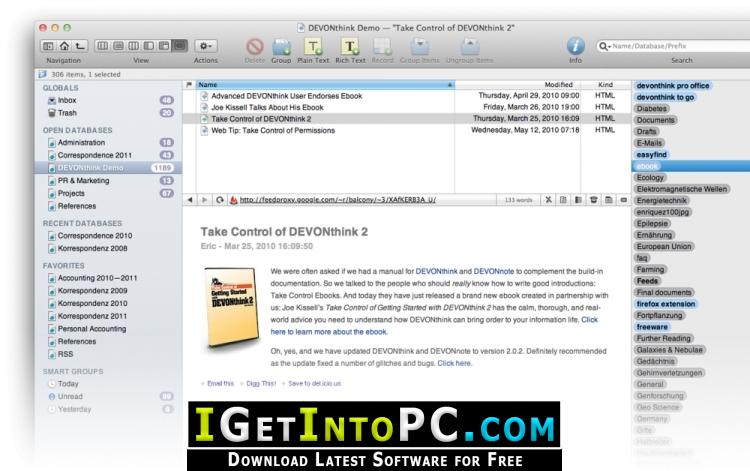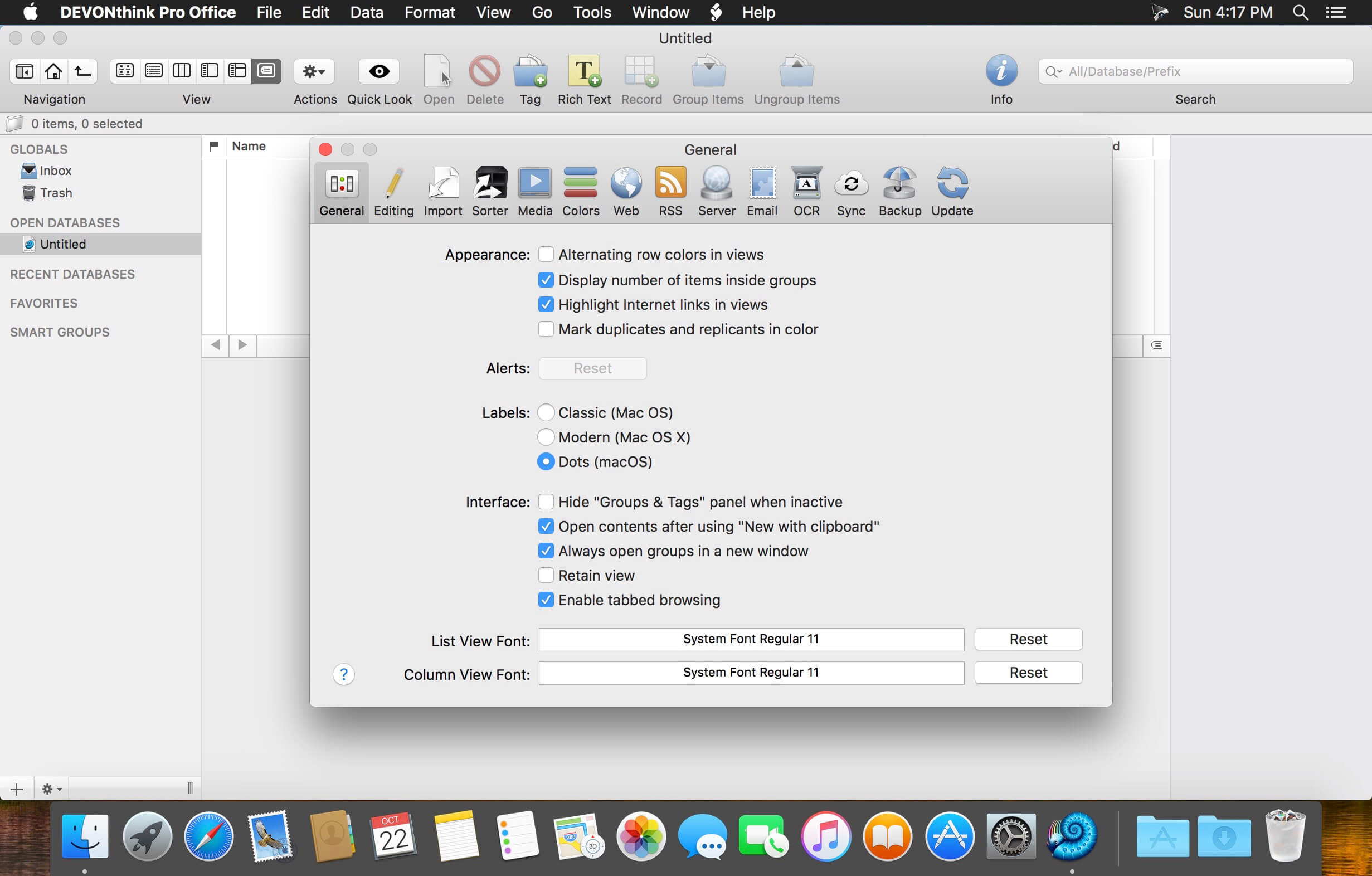
Devonthink pro search within pro#
In addition, the document needs to contain the word "side" or any word starting with "second" located within two words range of any word starting with "effect".DEVONthink Pro 3 Free Download MacOS Latest Version for macOS. This query looks for documents containing the word "Paracetamol" near (within 10 words) to words either starting with "effect" (and so also "effects") or "impact". The word "Pro" does not need to occur, but if it does, the document is ranked higher in the list of search results.Įxample: Paracetamol NEAR (~effect OR impact) AND ((side OR second*) NEAR/2 ~effect) This query looks for documents that contain the words "Steve" and "Jobs" no farther ten words away from each other, as well as the word "iMac" (no specific position relative to Steve and Jobs), but not the word "MacBook". This query looks for all documents that contain the words "devonian" and "dinosaurs".Įxample: (Steve NEAR Jobs) AND iMac BUT NOT MacBook OPT Pro Here are some example queries that show how the operators are used. Characters separated by dots are considered to be abbreviations and therefore handled like words separated by hyphens, e.g., the term t.a.t.u is equal to "t a t u" OR tatuīy using any or all of the operators and rules layed out above you can create complex queries that find the exact information you're looking for. Words separated by hyphens are handled like word1word2 OR "word1 word2". or page_id) are treated like phrases put into "quotes". Words linked by non-white separators (e.g. > date: Matches items that were created/edited/viewed after date. = date: Matches items that were created/edited/viewed after or on date.

Terms with same priority but without parenthesis are evaluated from left to right.įor comparing dates in smart groups the following operators are available: Operators are evaluated in the following priority: parenthesis > phrase/hyphens > (NOT) BEFORE/AFTER/NEAR/NEXT > NOT > AND/OR/XOR/EOR. Enter the vertical ruler character for the OR operator by pressing ⌥7 (e.g. Note: The symbols above are also used by the Finder and Spotlight for searches. ~term1: Contains term1, also as part of a wordįor convenience, some of these operators can also be abbreviated using commonly used symbols: Term1 AFTER/n term2: term1 occurs n or less words after term2 Term1 AFTER term2: term1 occurs after term2 Term1 NEXT/n term2: term 1 occurs n or less words before term2 (synonym for BEFORE/n) Term1 NEXT term2: term1 occurs right before term2 (shortcut for BEFORE/1) Term1 BEFORE/n term2: term1 occurs n or less words before term2 Term1 BEFORE term2: term1 occurs before term2 Term1 NEAR/n term2: term1 occurs n or less words before or after term2 Term1 NEAR term2: term1 occurs 10 words or less before or after term2 If term2 does, the found document ranks higher in the search results.

Term1 OPT term2: term1 needs to occur, term2 can. Use these operators as a replacement for AND and "quotes" to fine tune your query. "term1": Contains the string of words term1, in exactly this formīesides the classic Boolean operators, DEVONthink Pro Office uses a number of operators that usually are found in high-end databases. Term1 EOR term2: Contains term1 or term2, but not both Term1 XOR term2: Contains term1 or term2, but not both

Term1 BUT term2: Contains term1 AND term2 Term1 AND term2: Contains term1 AND term2 If no operator is given, DEVONthink Pro Office infers AND. The operators (often called Boolean operators) are words or symbols that establish logical rules for the terms in the search query. : Matches one character that is not contained in the given list or range.

or : Matches one character out of the given list of characters. : Matches one character of the range "a" through "b". *: Matches none, one, or multiple characters. You can replace parts of words with wildcards matching one, multiple, or a range of characters: Search terms and associated operators will be interpreted from left to right, except as modified by including portions of the query within parentheses. You may, if you wish, use capitalization for proper names in a query, but DEVONthink Pro Office will ignore case in interpreting the query. The complexity of the query is unlimited.Īll terms are case-insensitive. The syntax of the operators is compatible to DEVONagent and EasyFind, the Finder, Spotlight, common search engines as well as common programming languages such as C, C++, Objective-C, Java, and JavaScript. In the toolbar search field, as well as in both the interactive and the simple web interface, you can use standard and extended Boolean operators, parenthesis, and more to fine tune your search.


 0 kommentar(er)
0 kommentar(er)
